The stunning rise, curious suspension and insistent return of Israel’s star spokesman
As Israel has struggled to make its case to the world since Oct. 7, Eylon Levy was a rare compelling English-speaking voice. So why was he pushed aside, and what is he doing about it?
(THE TIMES OF ISRAEL) By his estimate, Eylon Levy has given some 270 TV, radio, and podcast interviews, delivered 70 briefings to delegations, made dozens of Hebrew media appearances, and helmed 50 press conferences since being brought into the National Public Diplomacy Directorate at the Prime Minister’s Office days after the Hamas invasion on October 7.
Articulate, sharp and passionate, the London-born, Oxford- and Cambridge-educated Israeli, a former TV journalist and media adviser to President Isaac Herzog, quickly became a much sought-after government spokesman for international media, and a celebrity at home.
In January, it was reported that Sara Netanyahu wanted him fired, because he had participated in anti-judicial overhaul demonstrations in the period between his last job, as adviser to Herzog, and this one. But those reports were denied, and Levy’s work was not affected.
Three weeks ago, however, he was suspended, until further notice — reportedly after the British Foreign Office complained about a tweet in which he responded to remarks by British Foreign Secretary David Cameron concerning aid to Gaza. Levy has not actually seen the complaint, he told The Times of Israel in an interview on Thursday, but he finds it “difficult to believe” that the Cameron incident constitutes the full story behind his suspension.
Levy, 32, has not heard any “further notice” from his bosses at the Public Diplomacy Directorate, and therefore has determined that he is now a “former” government spokesman. In which capacity, after three weeks in “submarine mode,” he is about to go back to giving interviews… and to resume a podcast series that is partly funded by a different branch of the government.
On March 31, a few hours after this interview was first published, he changed his bio on X to “Former Israeli Government Spokesman” and tweeted: “You don’t need to be a spokesperson to speak up for Israel.” In a Hebrew tweet, he wrote that he and his public diplomacy team were embarking on “an independent path.”
Confused? Concerned? Read on…
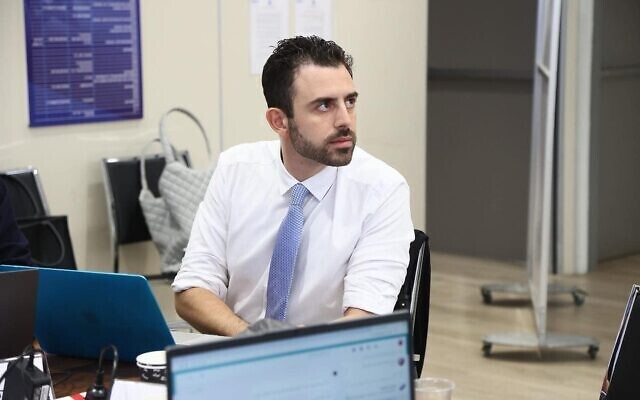
The Times of Israel: Let’s start with you explaining your current state of employment.
Eylon Levy: It has been nearly six months since the start of the war. And I’m embarking on a new and independent path, setting up a civilian public diplomacy initiative in my capacity as a former government spokesman and former presidential adviser.
A while ago, we secured funding from the Diaspora Ministry to establish the “State of a Nation” podcast. The idea is it’s going to be a platform that will enable us to make content and material accessible to our supporters and audience, in a format that they enjoy consuming, to help them understand what’s happening here and arm themselves with the points that they need to fight our corner. Yesterday, I filmed an episode with [former Jerusalem Post editor] Yaakov Katz, who spoke about the IDF’s precision capabilities, and how to explain the extent of the destruction in Gaza.
We secured partial funding from the Diaspora Ministry for State of a Nation. Minister Amichai Chikli is behind us. Now we’re crowdfunding. The grant that we’ve received from the ministry is for matching funding.
I’m going to take the team that’s been working with me since the beginning of the war — because I’ve been working together with a whole team around me; otherwise, it would not have been possible to keep up the intensity of the activity that we’ve been doing.
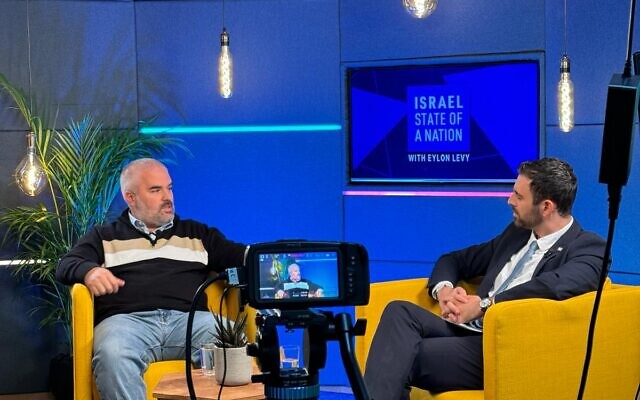
We’re going to plow ahead with the podcast and expand it massively. I’m going to continue giving interviews wherever I can as a former government spokesman. I’ve seen the terrific work that Jonathan Conricus has been doing as a former IDF spokesman as well, interviewing around the world. I’m going to continue fighting that fight, continuing to produce material on social media — stuff that’s going to drive engagement — and taking other information, making it accessible for our audiences, and hopefully being able to continue with all the other activities that came together under the initiative that Rotem Sella set up at the beginning of this operation to organize tours for important VIPs who came to visit. They set up a pressroom that was helping journalists to connect and find sources and place stories.
Why are you doing all this? I don’t understand. Until the last few weeks, you were a government spokesperson. I don’t even know how that came about in the first place, so tell me briefly about that. But why are you now embarking on a semi-government-funded private initiative, when you were born to the spokesperson’s role, it seemed, and were very successful. What’s happened?
It has been a surreal six months that have propelled all of us to places we never thought we would be.
If you had shown me the screenshot from “Eretz Nehederet” [“Wonderful Country,” a satire show] last week, in which I tell the prime minister’s wife, “But I don’t work for you anymore,” and asked me to explain how this came about before October seventh, I wouldn’t have been able to describe it at all.

When the war started, I was a private citizen. I’d finished working for the president as his foreign media adviser a few months earlier. And after a day of moping on the sofa, a day of distributing food parcels to Holocaust survivors and soldiers, I said, Right, everyone’s playing their part. I know how to do interviews.
I set up a pile of books on the dining room table; took the bottle of protein powder — I’ve barely been to the gym since this war started — put it behind; took a banker’s lamp, put it on top; took a picture, tweeted it and said, Hello, I’m a former adviser to the president, and I’m available to give media interviews.
That lasted for about three days of the war, and I think I did about a dozen interviews as a private citizen.
On the Thursday night after the war started, I got a phone call from Rotem Sella — the publisher, not the supermodel. He says, Listen, I’m setting up a parallel public diplomacy initiative that is going to give backup to the National Public Diplomacy Directorate.
The country was caught with its pants down, evidently not prepared for the scale of the challenge, when the massacre happened. He said, I’m putting together a team and we’re going to come in as a backup unit to support the efforts of the Prime Minister’s Office. Do you want to come in and be involved?
I said, In what capacity?
He said, What can you do?
I said, Well, I’ve been doing interviews.
He said, Would you like to do that?
I said, For the Prime Minister’s Office?
He said, Yes.
I said, Okay, fine. Count me in. Let’s do it.
Friday morning, I was on the phone with Irish radio talking about the IDF’s order to evacuate northern Gaza. I met Rotem for a coffee and he said, Okay, let’s go to the Kirya [Defense Ministry headquarters in Tel Aviv]. Complete chaos, of course, in the early days of the war.
And there I saw Mark Regev [a longtime media adviser and spokesman to Prime Minister Benjamin Netanyahu], whom I’ve known for many years, and idolized him as a child, by the way, because he was the face going on TV defending Israel.
Mark said, Eylon, it’s good to see you. We’re overwhelmed with all the interview requests. We need backup. I want you to watch a few of my interviews, and from tomorrow you’re on your own.
I said, What do you mean? Doing what?
He said, Giving TV interviews.
I said, In what capacity?
He paused and said, An Israeli government spokesman. That’s your title. Run with it.
The following day, I was on TV already, in a suit and tie, and a stripe saying “Israeli government spokesman,” representing the country on international TV and media. Since then, it’s been around 270 TV, radio, and podcast interviews, about another 70 briefings and [talks to] delegations, several dozen Hebrew media appearances, and about 50 press conferences as well.
Fifty press conferences, where you were the person speaking to a significant number of journalists?
Yes. This was one of the initiatives that Rotem helped to introduce.
A daily thing you were doing, that was livestreamed?
Yes. During the peak interest around the hostage release pause [at the end of November] — we were broadcasting from a new media center that they built at Sarona, just opposite the Kirya — BBC, Sky News, Fox News were interrupting their regular coverage to say, We’re now going to Tel Aviv where the Israeli government is holding a press conference. And there was a statement that I’d put together that morning to try to take information from things the prime minister had been saying and the defense minister and the IDF, and packaged into a coherent narrative that we could then present to the international media.
You put that together yourself, and there was nobody telling you… This was your thing?
Yes, I put it together. I would run it by Keren Pakes, who also came on board with the initiative at the beginning of the war to help, and by the officials at the directorate. I had a team of volunteers who were helping me — and they continue helping me — scour the news, look for the buried leads, try to get the information, help with research. But this was a press conference that, between the interviews, I put together, presented, and it goes on BBC live….
You did this for almost six months?
Yes.
There were a lot of reports — I don’t think you confirmed — that the prime minister’s wife wanted you fired because you had, between working for Herzog and this, been among the hundreds of thousands of people who demonstrated against the coalition’s effort to subjugate the judiciary. Was that true? And I come back to my original question, what has changed now?
(Laughs) The closest I’ve ever come to the prime minister’s wife was on “Eretz Nehederet.” I’ve never met her. I’ve never spoken to her. When I saw that report on Channel 12 [in late January claiming she wanted me fired], no one at the Prime Minister’s Office had ever mentioned anything about that. Before or after.
To be honest, it’s surprising, because the impression I get from everyone at the Public Diplomacy Directorate is that these are professionals and they’re not dealing with politics. It’s known that there are other people there as well who may have other private political opinions, but it doesn’t matter.
When you say “it’s surprising,” you mean, you were doing your work, the people you were working with were professional people, and then all of a sudden there was a report out of nowhere that says the prime minister’s wife wants you fired, and that was complete news to you?
No one at the Prime Minister’s Office or the Public Diplomacy Directorate had ever mentioned anything about it before.
Therefore, as far as you were concerned at that time, that was just an unknowable piece of information that had not actually affected you in any way? So you carried on?
The following day was business as usual. I came in. I had an interview with Times Radio, where, because I have, behind me, [a sign that says] National Public Diplomacy Directorate, Prime Minister’s Office, they introduced me as a spokesman for the Prime Minister’s Office. It was just after the prime minister had pushed back on some of the pressure for a two-state solution. Back in the trenches fighting.
Okay, but here we are now at the end of March, and you’re no longer a spokesman for the prime minister, so something happened.
Oh. Well, you’re familiar that I was suspended a few weeks ago.
Because you had offended [UK Foreign Secretary] David Cameron or reacted in a non-spokesmanlike way to something that Cameron had said? Tell me.
Three weeks ago, I got a phone call from Moshik Aviv, the head of the Public Diplomacy Directorate.
The Rotem Sella initiative, through which you came in, is a kind of an adjunct?
Yes.
You were hired not by the directorate, which Mark Regev was working for, but from Rotem Sella’s new initiative.
I came through Rotem’s initiative…
Coopted into the actual…
Coopted. Exactly.
So you’re now working for Moshe Aviv, who is actually the formal head of the official directorate?
Exactly. Because I would stand behind the podium which had on it, Prime Minister’s Office… What Rotem’s operation was doing was daily briefings in Russian, and Farsi, and Spanish, and other languages.
But you had moved very quickly away from that.
Exactly. Within a week…
Okay, so you got a phone call three weeks ago…
From Moshik saying, We’ve received some sort of complaint from the British about something that you tweeted at David Cameron. I have to suspend you.
I said, For how long? He said, I don’t know. For now, no interviews and no press conferences.
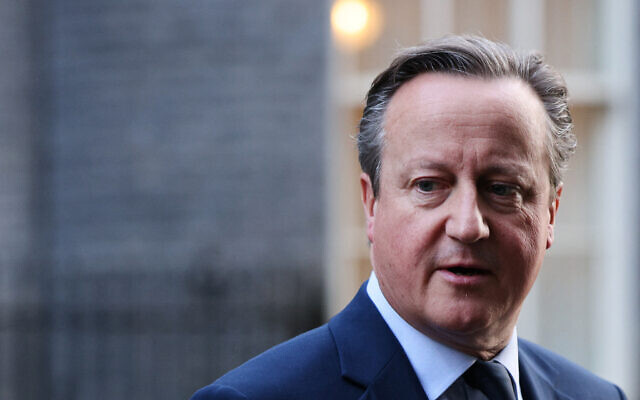
What was it that you had tweeted?
Well, that’s the thing. I haven’t actually seen the complaint. What I know is from the media reports. Lord Cameron had tweeted that Israel must let more trucks into Gaza. And I replied that there was still excess capacity at the Kerem Shalom crossing, and to the extent that they send more trucks to Kerem Shalom, we’ll let them in. That was it. I mean, it was a statement of fact. It was a statement of government policy, and what we’ve been repeating.
He had said there needs to be more aid…
That Israel needs to let more aid into Gaza. And I said there’s excess capacity at Israel’s crossings; there are no restrictions on food, water, medicine, or shelter equipment. The same talking points we’ve been mentioning in every press conference.
And therefore, hand on your heart, there was nothing in that that you thought anybody reasonable would think was an outrageous affront or disrespectful response?
No.
I can understand if perhaps this was a minor breach of diplomatic protocol, that a spokesperson is not supposed to reply to a foreign secretary on Twitter.
Is that a thing?
I don’t know. Maybe.
You had not been told, don’t ever directly respond to a politician or tweet at a politician? Were you told anything… now you were part of this official directorate?
No. It’s only in the startup nation that someone can go, in three days, from giving interviews in their living room to standing behind a lectern saying, “Prime Minister’s Office.” And I think one of the incredible things about Israel is the cultural tendency to take young people, give them an insane amount of responsibility, trust them, and say, run with it. All of which happened.
Nobody actually told you, Here, these are things you’re allowed to do, these are things you’re not allowed to do?
From the National Public Diplomacy Directorate, every day, there was a message sheet. Here are the core points. We get all the press releases that are coming. Here’s what the prime minister is saying. Here’s what the defense minister is saying. But [there’s] an incredible amount of latitude to take that information and then frame it and bring in new information and shape the public messages.
It’s not that I was given a script and told, Read this. I’m taking the information, I’m writing it, someone’s approving it.
So, for example, were you told, You’re not allowed to tweet without a more experienced, veteran person’s approval?
No.
So, all of a sudden, you do something that you think is fairly routine, reflecting the talking points…
Throughout the war, what enabled us to get quoted so often in the major publications was the incredible latitude to shape messaging, shape sound bites, and tweet as well.
Sometimes I look and I see the New York Times or Wall Street Journal will have quoted something I said on the basis of a tweet. So no, there were no sorts of guidelines. I was, as a citizen, pleasantly surprised by how much latitude we had.
And by the way, what I’ve been trying to do in the course of this war, using the latitude that we were given, is to redefine the role of what it means to be a government spokesman. I said to the team, Look, we’re not going to just wait for CNN to pick up the phone and interview us. We’re going to do three main prompts:
One, interviews and press conferences, and we’re going to use the press conferences in order to shape the agenda and shape the story and make sure that the facts that the journalists aren’t getting are being brought front and center.
Two, massively use social media, in a way that toes the line between government spokesman and content creator and commentator. It’s thanks to that that in the course of the war, my Instagram has reached 220,000 followers. That’s all just from the war, because we’ve been creating new content, saying, Okay, how do people enjoy getting that content? By clicking through their phones. So let’s create public diplomacy content and package it like that.
Aggressive tweeting as well. My Twitter is up to 180,000 followers. Last time I checked, since the start of the war, there had been about 600 million impressions on my Twitter account alone, which is more, in terms of followers, than the Foreign Ministry and IDF spokespeople put together, and then some. It’s by far the most powerful spokesperson platform.

The third [element] is the podcast. When I was in New York just now, I interviewed [US Congressman] Ritchie Torres in his office. I think it’s probably the first time that a foreign government spokesman has ever interviewed a sitting politician for a media-style interview.
We’ve said, Look, the numbers are stacked against us around the world in terms of fighting this. We are going to have to be as creative as possible and use this latitude.
You tweeted something, in your opinion, relatively unremarkable, in line with the talking points you’ve been delivering anyway. Then you get told by your boss, I’m going to have to suspend you. You haven’t seen the complaint. You said, How long? And he said, I don’t know. Then what happened?
Nothing.
That meant you were not allowed to represent Israel anymore at an official level, as of three weeks ago?
No interviews, no press conferences.
Were they paying you for the almost six months you were working?
I don’t want to get into the money issues. In the emergency mobilization in the beginning of the war, it’s not like everyone was put on a formal contract or a formal engagement. But nearly all the invoices I’ve submitted have been paid. That’s not an issue for me.
You’re probably the most effective and articulate spokesperson the country has. You were told three weeks ago, there’s a bit of a problem, and that’s the end of it? No further discussion? Nothing, nothing, nothing, and therefore you just realized it’s over?
I expected that this would be resolved in a matter of days, because what I assumed would happen is that a reply would be sent saying, Yes, this was a reflection of government policy and facts. Perhaps…
Who would be sending that, did you think?
Well, whoever received the letter. I don’t know.
As far as you understand, the British foreign secretary complained to the Foreign Ministry?
What was reported in the media is that it was the British Foreign Office.
The Foreign Office complained to its Israeli counterpart. You don’t know?
I don’t know.
You assumed it would be dealt with by them… Did you say anything, do anything?
No.
Because that would have been inappropriate?
Because that would have been inappropriate.
By the way, the story that’s been spiraling in Britain, the way it’s been understood in Britain, is that I was suspended because I must have lied. I must have lied to David Cameron about aid policy. That is the way that the story has been spun by the British press… Because a letter came out from David Cameron, responding to Alicia Kearns, the head of the House of Commons Foreign Affairs Committee, in which he pushed back on the points that Israel has been making. And so the assumption that’s been made in Britain has been, Well, I must have been suspended because I didn’t tell the truth.
Except this is indeed what Israel argues consistently and very publicly — that there’s no limitation on aid, and the only problem is the distribution.
Yes. But in the interest of trying to resolve this, I said, Okay, come and get me. Keep talking. I’m not going to start going on British TV and fighting my corner, because that’s not going to help.
You adopted what you considered to be a respectful silence?
Submarine mode: I’m not giving interviews. I’m not giving press conferences.
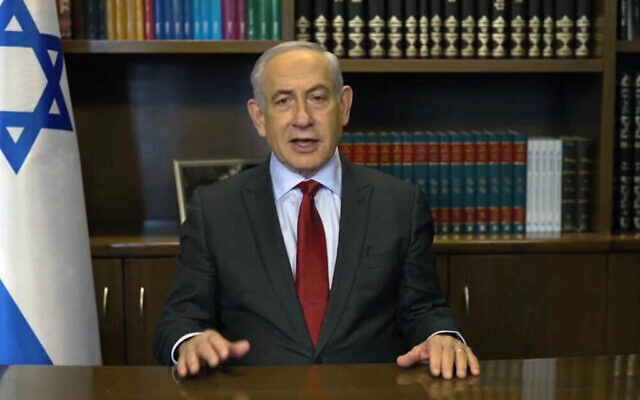
The same day or the day after I was suspended, Channel 12 reported it. And the following week, after the prime minister was quoted as saying that he was surrounded by people who didn’t speak English, the Israeli media perhaps then suddenly realized I hadn’t given an interview or a press conference in a week and reported that I’d been suspended.
And then a few days ago, there was the report, which completely blindsided me — I heard about it because someone texted me saying they just talked about you on the news right now — saying that there were plans to terminate my position altogether.
You’re the person here, you understand?
(Laughs.) You say “You’re the person.” People ask me, How have you been coping with all the stress of the last few months? To be honest, it is so surreal, the position that I find myself in now. Sometimes it feels like an out-of-body experience, because so many things unrelated to me are happening around me. The fact that it’s so surreal makes it easier to deal with the pressure.
Formally — I want to understand — the last conversation you had at all, since you took up the role of a spokesperson for the prime minister, was from your boss, Moshik Aviv, saying, I have to suspend you and I don’t know how long for? You’ve not been fired?
No.
You would know, I would think. It’s been reported that you’ve been fired.
Channel 12 didn’t actually say that… Channel 12 said, He’s going to be fired.
So, as far as you know, you haven’t been fired?
No.
So, actually, you’ve left your job now to start a…
I’m stepping back. Stepping back from the official capacity, in order to continue…
You don’t have a contract?
No.
You have been told you’ve been suspended from a job that you were never formally signed up to take? You’re now going off on your own because apparently you’ve been fired, but you know nothing about it. That’s what you’re describing, right?
Let me show you a video we made. This is a video that we’re going to post on the crowdfunding website.
You’re now funded by a different government ministry, semi-funded?
The podcast operation was funded all along by the [Diaspora Ministry]. It’s pivoting [for me] to be able to give interviews as a former government spokesman and to use this platform.
This is what you’ve set up now, introducing what you’re going to do?
Look, three weeks ago, I was suspended until further notice.
And no further notice has come.
So I draw conclusions.
Our situation is catastrophic right now in terms of global public opinion. The lies that are being told about Israel, from genocide to starvation, have placed Israel in a very perilous moment. I need to be in the trenches.
Because you’re good at it and you think that if it can’t be done within the formal framework of the Prime Minister’s Office and the government, you still need to do it?
Exactly.
I haven’t given interviews in the last three weeks. There’s a ton that I want to say, that I need to say, and I need to get back on TV screens. And if it’s not as a government spokesman, it’ll be as a former government spokesman.
When people phone you now or email you and say, Can you speak to us? You say, I’m very happy to do it and I have to stress, I’m no longer an official Israeli prime ministerial spokesman? I am now a what?
A former government spokesman.
Working independently, with some government funding?
For the podcast. Yes.
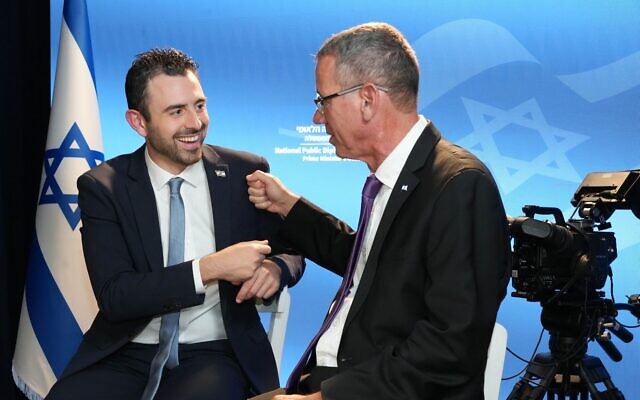
Okay, so you’ll be honest about the circumstance and people will want to interview you or they won’t. And this operation that you were encouraged to join six months ago… what have you left behind there?
At the Prime Minister’s Office? Mark Regev is a workhorse. He is my rabbi and teacher. I regard him as my mentor, idolized him growing up, watched every one of his interviews.
I think Israel has been putting up a much better fight this war than in previous wars, and I’ll lay out the architecture.
First of all, it starts right at the top. The prime minister has also been rolling up his sleeves and giving media interviews. Every time he speaks, he has this phenomenal ability with sound bites and to distill information. Out comes the notepad and pen and paper and we learn from that. That’s the cue that we take. The president as well has been doing media tours and giving interviews. Minister Dermer as well, especially in the last few days, but not just. Every interview he gives is a gold mine in terms of information and sound bites that we use.
But in terms of the operation of the public diplomacy, Mark Regev is still doing the occasional interview, if it’s genuinely big, [such as a] Christiane Amanpour, Hardtalk interview. Tal Heinrich, who is officially a spokeswoman for the Prime Minister’s Office, she got on a plane on October seventh, came to Israel. She’s doing interviews and some of the press conferences. Avi Hyman, as well, started at the beginning of the war, has started taking on interviews; now he’s giving most of the press conferences…. Ophir Falk. They’ve recently brought in another few people… to do some of the press conferences…
Do you think somebody was out to get you? Or do you think, actually, you overstepped the mark in a response to David Cameron? And where’s Sara Netanyahu in all of this?
I find it difficult to believe that this is really about the tweet to David Cameron because I tweeted government policy and facts, and it’s a non-issue. I really don’t know what’s been going on behind the scenes since then. I really don’t know.
Had you offended people, do you think? You’ve never met Sara Nentayahu. How about the prime minister, by the way?
Never met the prime minister.
In the six months you’ve been in this, you never had face time with the prime minister?
Not once.
My job was on the official side. I could have not tweeted and kept doing the job. It wasn’t to create content, not to create the podcast. It was to do interviews and press conferences. That was the core of the work. At the peak of the war, there were days when I was doing 10 a day. Together with Mark and Tal, we were easily doing two dozen interviews or more a day. We were there on the TV screens trying to refute the lies.
If a particular incident was unfolding, I’d know I have the daily press conference. Okay, let’s work out what the army is saying. There’s this independent watchdog that’s saying this. And then try to use it in order to shape the narrative, and then that does end up getting quoted. But I definitely think that one of the lessons that will have to be learned for the next war — please God, there won’t be a next war — is improving our response to crisis communications.
I’ll give you an example. I was in New York a few weeks ago on a public diplomacy tour. I was invited by Hillel to speak at their conference, and then piggybacked on that to do a round of all the TV studios in New York.
And one day, the American defense secretary [Lloyd Austin] said that Israel had killed 25,000 women and children in Gaza. Spreads like wildfire around the world: The US has confirmed; it’s even higher than Hamas’s numbers; this means Israel must be lying, blah, blah, blah.
I started seeing, within a few hours, journalists saying that the Pentagon had clarified the remarks. So while I’m in the middle of these different events in New York, I’m desperately trying to find the YouTube video of the Pentagon briefing. I just managed to get back to the hotel room. I do a screen record of the press conference of the Pentagon spokesman on my phone, cut it, put subtitles, and the bit where he says, [Austin] was referring to the total figures, he was referring to the Hamas figures, the United States has no independent estimate. I then tweeted that out, and complained to Sky News that they had tweeted the original Lloyd Austin statement after the Pentagon had already clarified what he said. But by then the damage had been done.
Your point being that you’re trying to put out fires, but there’s actually no mechanism dealing with that stuff?
It’s not that there’s no mechanism, but clearly the fire hadn’t been put out in time.
What do you make of the Gaza death toll? You have no independent knowledge, right? Does Israel have an official take?
I’ve seen the Tablet magazine article. I’ve seen the Washington Institute analysis of how they’re making up facts. I know the last time the prime minister addressed the issue, in the interview he gave to John Spencer, he spoke about the civilian-to-combatant ratio being below one to one.
More gunmen killed than civilians?
That was what the prime minister said in that statement. I’m not aware of an independent assessment we have. We’re acutely aware that Hamas has proven that there is no lie that it can make that gullible people won’t swallow.
And the worst of those?
The Shifa rape stories that even Al Jazeera walked backlater and said were completely made up. But you have people who are predisposed to believe that Israel is to blame for everything, and will believe it. The way the Al-Ahli hospital story spread like wildfire, the so-called flour massacre, the other incident where they accused Israel of shooting at civilians, and actually, no, it was Hamas shooting at civilians.
There is a large section of public opinion that is simply primed to automatically believe the worst about Israel — read: the Jews. Hamas manipulates that. Hamas’s propaganda is based on the very correct assumption that some people will believe, are automatically predisposed to believe, the worst about Israel. And they abuse it, and they exploit it.
You’ve said that this is a serious crisis for Israel. How serious do you think it is, and where do you see it headed? I mean, you don’t know what’s going to happen on the battlefield, but you are on the second battlefield.
Look, on the one hand, I saw the Harvard-Harris poll showing, what is it, 79% of Americans back Israel over Hamas; two-thirds of Americans would reject a ceasefire that leaves Hamas in power or the hostages in Gaza. The large majority of the public of the greatest superpower on Earth are still behind us. The Harvard-Harris poll also showed that Israel has higher approval ratings among the American public than CNN and MSNBC. So in terms of who’s winning the media war…?
There was a Gallup poll yesterday that suggests that most Americans now don’t approve of the way we are prosecuting the war…
And yet when you ask them, Do you think that Israel should stop the war in a way that leaves Hamas in power and the hostages in Gaza?, they say, No, keep going, we’re behind you.
But the information architecture is completely stacked against us, because when I’m going on as a spokesman for the Israeli government, or the National Public Diplomacy Directorate at the Prime Minister’s Office, I’ve got going against me not only Hamas and the Palestinians, but the whole infrastructure of the United Nations, and then I have an alphabet soup of human rights organizations that are weaponizing international law to make it say whatever they want it to say against Israel.
I saw this last night, a hashtag for the UN in Geneva tweeting Francesca Albanese, saying, Independent human rights expert says Israel has plausibly reached the threshold for genocide. She’s the only UN rapporteur who’s ever been reprimanded by France and Germany for antisemitism. She gets quoted as an independent UN human rights expert.
When I look at the International Court of Justice initial decision, and I see how they were willing to make that decision based on “UNRWA said,” because it’s an organ of the United Nations, and to take the statement of a Hamas front at face value, I’m very deeply concerned.
This really is a fight for the future of our country and the future of our people and what the world is going to look like for the Jewish people when Hamas and its propagandists at the United Nations have managed to convince so many people that Israel is guilty of genocide. It’s been the wet dream of every anti-Semite since 1945 to haul the Jews up in the dock for the crimes of the Nazis. Now they’re doing it.
We have to push back. We just don’t have the luxury to say, Um-Shmum, it will pass, things will revert to normal.
And that’s why I’m saying three weeks after this suspension till further notice, when no further notice has come, I think I’ve been doing a decent job making the case for Israel. I’m needed in the trenches. I want to continue giving interviews and speaking and influencing.
If it’s not going to be as an official government spokesman, it’ll be as a former government spokesman and host of a podcast that is going to make quality information about Israel accessible to new audiences around the world.
—
Note: Asked by The Times of Israel on March 28 whether Levy has been fired as an Israeli government spokesman, the National Public Diplomacy Directorate said he had been suspended.
In an English-language tweet on March 31, Levy wrote: “You don’t need to be a spokesperson to speak up for Israel.” In a Hebrew tweet, he wrote that he and his public diplomacy team were embarking on “an independent path.” He also changed his bio on X to “Former Israeli Government Spokesman and International Media Advisor to the President of Israel.”

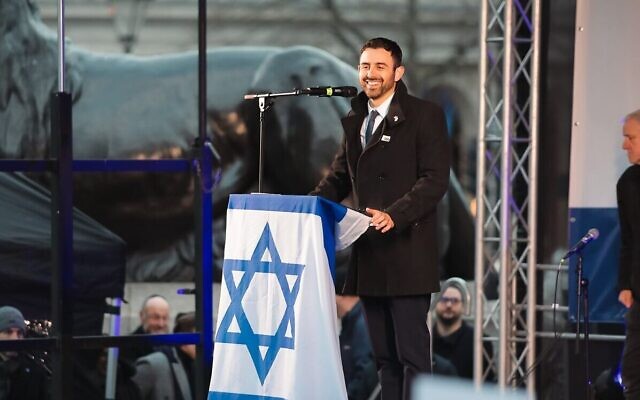
comments